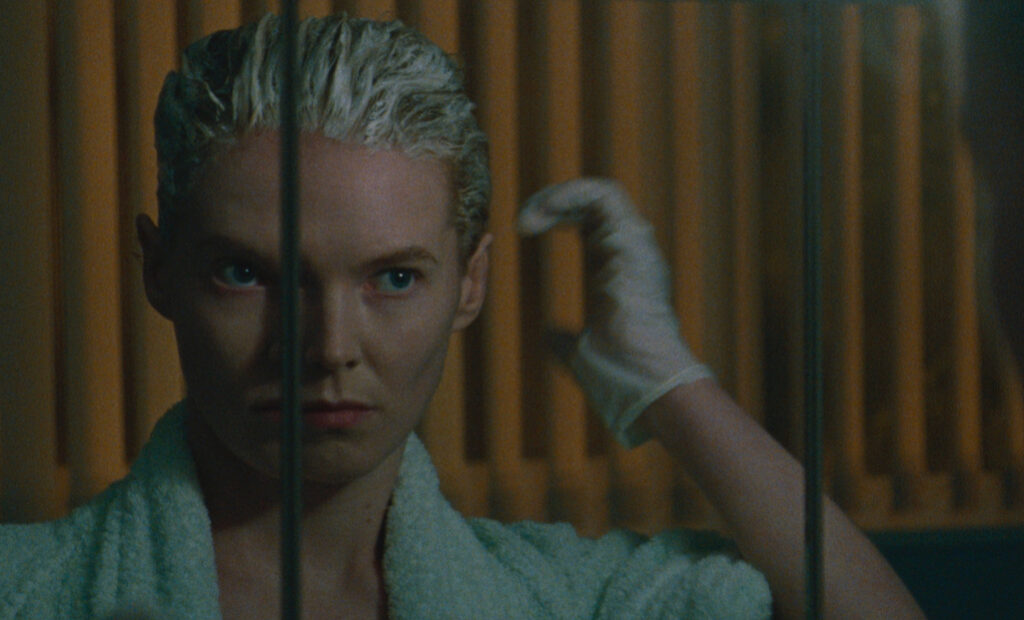Blue Jean

A deeply personal tale set against the backdrop of post-industrial Newcastle in its teething infancy, Blue Jean, the debut feature from Georgia Oakley, is a film teeming with compassion and nuance in its intricate portrayal of insidious internalised oppression.
The year is 1988. Margaret Thatcher’s Conservative government, by this time in power for nine years, is looking for a new dividing line. The new “enemy within” appears to be the nation’s homosexual community, and Section 28, a newly introduced clause of the Local Government Act of 1986 which, among other things, bans positive depictions of homosexuality in schools and seeks to whip up the suspicion against this newfound collective foe. Jean (Rosy McEwan) is a school PE teacher whose double life begins to buckle under the weight of the scrutiny of her still secret sexuality. Jean’s girlfriend, Viv (Kerrie Hayes), is not so reserved, being of the opinion that Jean’s reticence does a disservice to the cause. “You don’t know what it’s like for me”, Jean reminds Viv, bringing into focus the uniquely gruelling reality of surviving as a gay teacher in Thatcher’s Britain. The introduction of a new student, Lois (Lucy Halliday), pushes Jean to almost breaking point when they cross paths at a local lesbian nightclub, and she finds herself in an impossible position with her career, integrity, government and relationship dragging her towards disparate, irreconcilable points.
It is striking just how well Oakley’s debut feature nestles under the skin of the psychological torment caused by state-sponsored oppression to an outsider and must be all too recognisable to those whose lived experience corresponds with Jean’s. Succinct filmmaking shows how Jean’s behaviour becomes almost entirely dictated by the perceptions of her colleagues who, in one scene of almost unbearable distress sieved through Jean’s perspective, nod along to homophobic rhetoric on the staff room television. Every minuscule prod into Jean’s love life (“Craig would love you to come for a drink with us”), and every flippant, sardonic cry of “pervert!” in the school changing room, translates to a pang of fear and self-loathing in Jean.
Cinematographer Victor Seguin washes the film in hues of baby blue, allowing for a visually striking take on Thatcher’s Britain, which, combined with Chris Roe’s transcendental score, elevates the dreariness of the time and place to a plane of longing where flowers can grow from the concrete, not too dissimilar to the musical focus of The Smiths who, while perhaps not occupying many soundtracks these days, played their part in soundtracking the era.
But, while specific to its historical setting, Blue Jean is ultimately a universal tale of acceptance of oneself, and the long, often challenging road to it.
Matthew McMillan
Blue Jean does not have a UK release date yet.
Read more reviews from our Venice Film Festival 2022 coverage here.
For further information about the event visit the Venice Film Festival website here.

























Facebook
Twitter
Instagram
YouTube
RSS